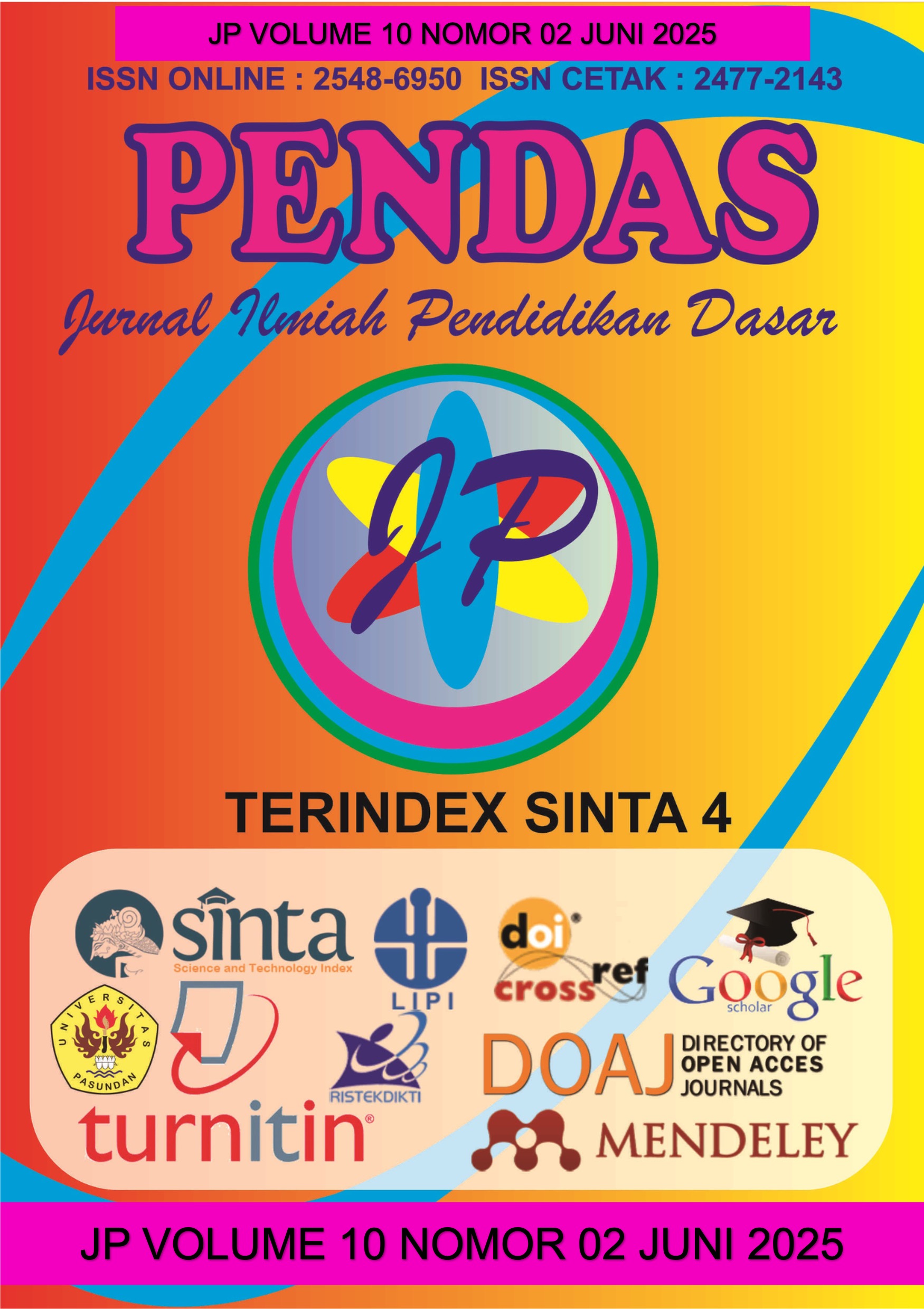TRANSFORMASI PENDIDIKAN DASAR MELALUI SEKOLAH RESPONSIF GENDER: STUDI EKSPERIMEN TERHADAP PENINGKATAN KESETARAAN DAN INKLUSI
DOI:
https://doi.org/10.23969/jp.v10i02.25723Keywords:
gender responsive school, elementary school, inclusionAbstract
Basic education plays an important role in shaping children's character and mindset from an early age. However, the implementation of gender-responsive school principles in many elementary schools still faces various challenges, such as gender stereotypes embedded in learning materials and biased social interactions, as well as limited understanding among teachers and supporting facilities. This study aims to analyze the impact of gender-responsive school interventions on improving equality and inclusivity at SD Muhammadiyah 1 Candi Labschool UMSIDA. The method used is an experimental study with a pretest-posttest one-group design, measuring attitudes, knowledge, and gender-responsive practices before and after the intervention. The primary instruments are questionnaires analyzed quantitatively using descriptive and inferential statistics, as well as qualitative data from interviews and observations analyzed thematically. The results of the study showed significant improvements in various aspects, including formal gender-responsive school policies, budget allocation for learning and extracurricular activities that support gender equality, and the integration of gender values in lesson plans. Additionally, the participation of male and female students became more balanced, and learning materials began to eliminate gender stereotypes. Although accessibility to facilities for persons with disabilities still needs improvement, teachers' awareness and competence on gender and inclusion issues have increased sharply. This training serves as an important foundation for the sustainable development of gender-responsive schools, while also opening opportunities for other schools to adopt similar approaches to achieve inclusive and equitable education.
Downloads
References
Arnot, M., & Dillabough, J. A. (2000). Challenging inequalities in education: Theories, policies and practices. Open University Press.
Avalos, B. (2011). Teacher professional development in Teaching and Teacher Education over ten years. Teaching and Teacher Education, 27(1), 10-20. https://doi.org/10.1016/j.tate.2010.08.007
Bhana, D. (2011). Gender in education: Theorising multiple intersections. South African Journal of Education, 31(1), 103-113.
Blackmore, J. (2004). Gender equity in schooling: Moving beyond the rhetoric. Australian Educational Researcher, 31(2), 17-35.
Burgstahler, S. (2015). Universal design in education: Principles and applications. DO-IT Publications. https://www.washington.edu/doit/universal-design-education-principles-and-applications
Chowdhury, R., & Lopes, A. (2020). Gender responsive pedagogy and curriculum: Key to inclusive education. International Journal of Educational Development, 75, 102167. https://doi.org/10.1016/j.ijedudev.2020.102167
Darling-Hammond, L. (2017). Teacher education around the world: What can we learn from international practice? European Journal of Teacher Education, 40(3), 291-309. https://doi.org/10.1080/02619768.2017.1315399
Francis, B. (2013). Gender, education and the reproduction of social inequality. British Journal of Sociology of Education, 34(1), 69-84. https://doi.org/10.1080/01425692.2013.755291
Fullan, M. (2007). The new meaning of educational change (4th ed.). Teachers College Press.
Imrie, R. (2012). Universal design and the politics of disability. Disability & Society, 27(4), 455-469. https://doi.org/10.1080/09687599.2012.671489
Kabeer, N. (2012). Women’s economic empowerment and inclusive growth: Labour markets and enterprise development. International Development Research Centre.
Kemdikbud. (2018). Pedoman sekolah ramah anak dan sensitif gender. Kementerian Pendidikan dan Kebudayaan Republik Indonesia
Kurniawati, F. (2019). Sekolah dasar responsif gender: Strategi dan tantangan dalam konteks pendidikan inklusif di Indonesia. Jurnal Pendidikan Dasar, 10(2), 123-136.
Leach, F., Fiscian, V., Kadzamira, E., Lemani, E., & Machakanja, P. (2003). An investigative study of the abuse of girls in African schools. Education Research Report No. 53. Department for International Development.
OECD. (2015). Improving schools in Indonesia: An OECD perspective. OECD Publishing. https://doi.org/10.1787/9789264227448-en
Risman, B. J. (2018). Gender as a social structure: Theory wrestling with activism. Gender & Society, 18(4), 429-450. https://doi.org/10.1177/0891243205285919
Sari, D. P. (2020). Implementasi pendidikan responsif gender di sekolah dasar: Studi kasus di Jakarta. Jurnal Pendidikan Inklusif, 6(1), 45-58.
Shakespeare, T. (2013). Disability rights and wrongs revisited. Routledge.
Skelton, C. (2007). Gendered education: Sociological reflections on women and teaching. Open University Press.
Stromquist, N. P. (2007). The gender socialization process in schools: A cross-national perspective. International Review of Education, 53(5-6), 541-555.
Unterhalter, E. (2014). Gender, education and equality in a global context: Concepts, policies and politics. Routledge.
UN Women. (2015). Progress of the world’s women 2015-2016: Transforming economies, realizing rights. UN Women.
UNESCO. (2016). Global education monitoring report 2016: Education for people and planet – Creating sustainable futures for all. UNESCO Publishing.
UNESCO. (2017). Gender equality and education. UNESCO. https://unesdoc.unesco.org/ark:/48223/pf0000253025
UNICEF. (2019). Gender-responsive education systems. UNICEF.
United Nations Girls’ Education Initiative (UNGEI). (2016). Gender-responsive teaching. UNGEI.
World Bank. (2012). World development report 2012: Gender equality and development. World Bank Publications.
Downloads
Published
Issue
Section
License
Copyright (c) 2025 Pendas : Jurnal Ilmiah Pendidikan Dasar

This work is licensed under a Creative Commons Attribution 4.0 International License.














































